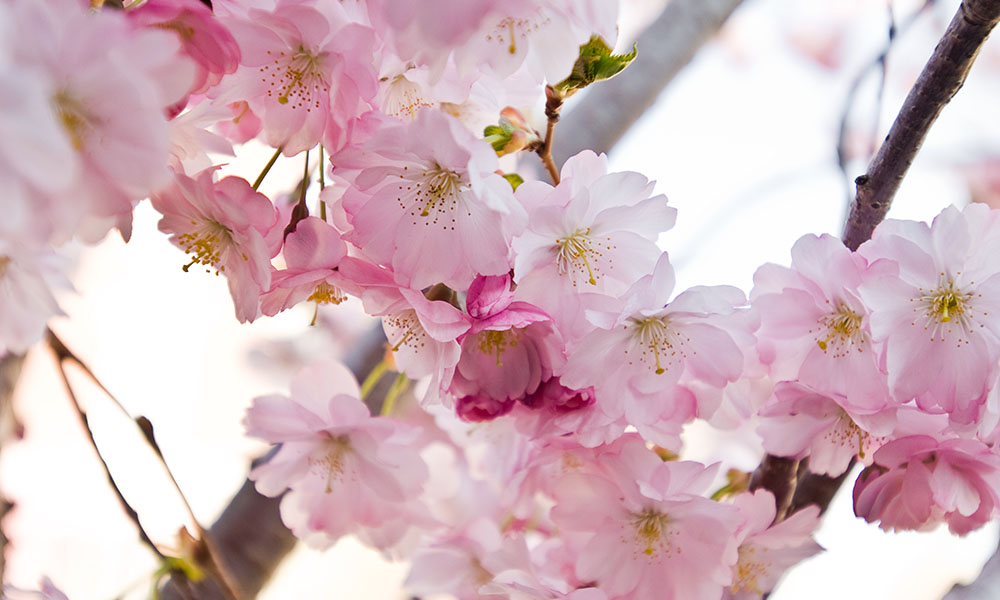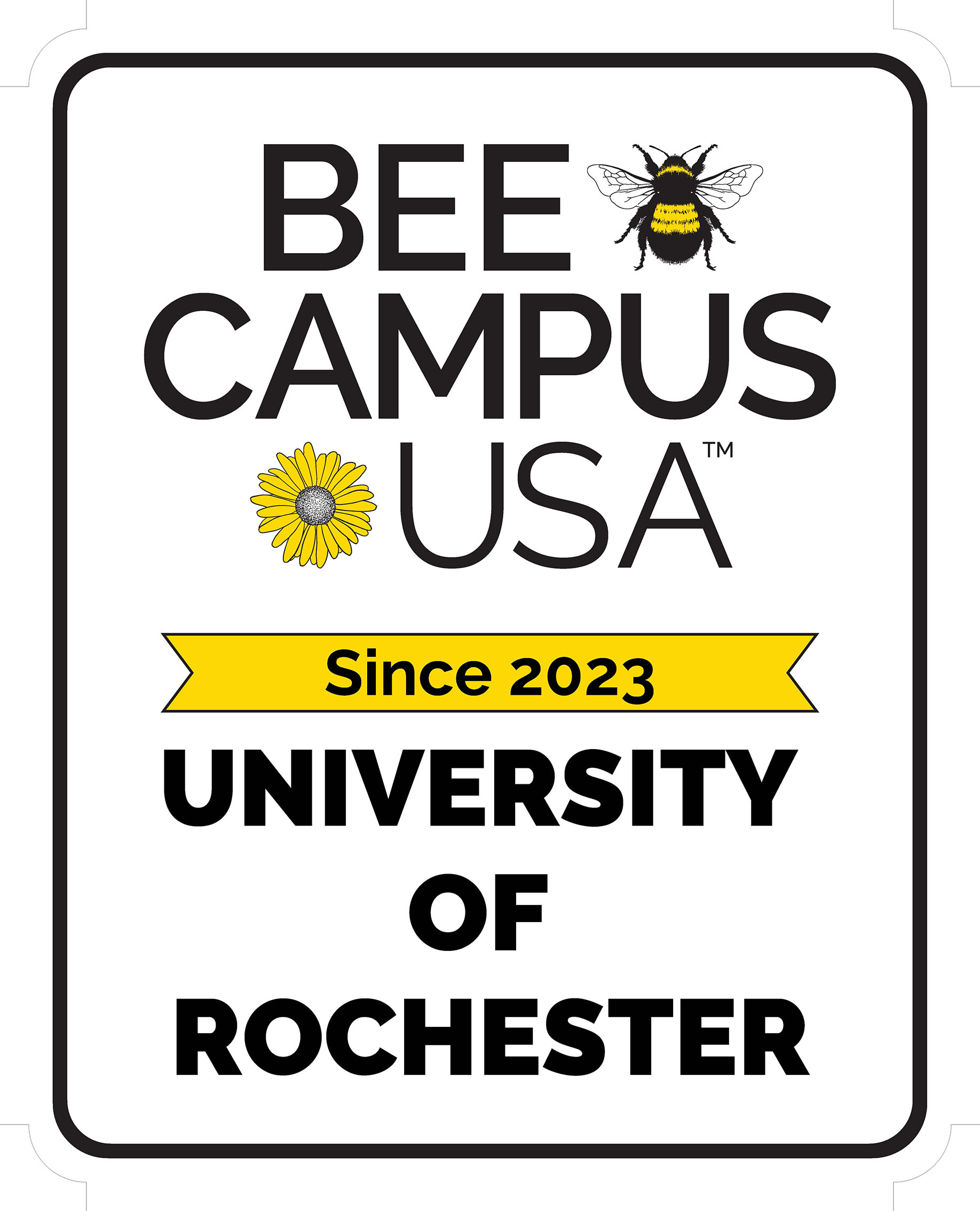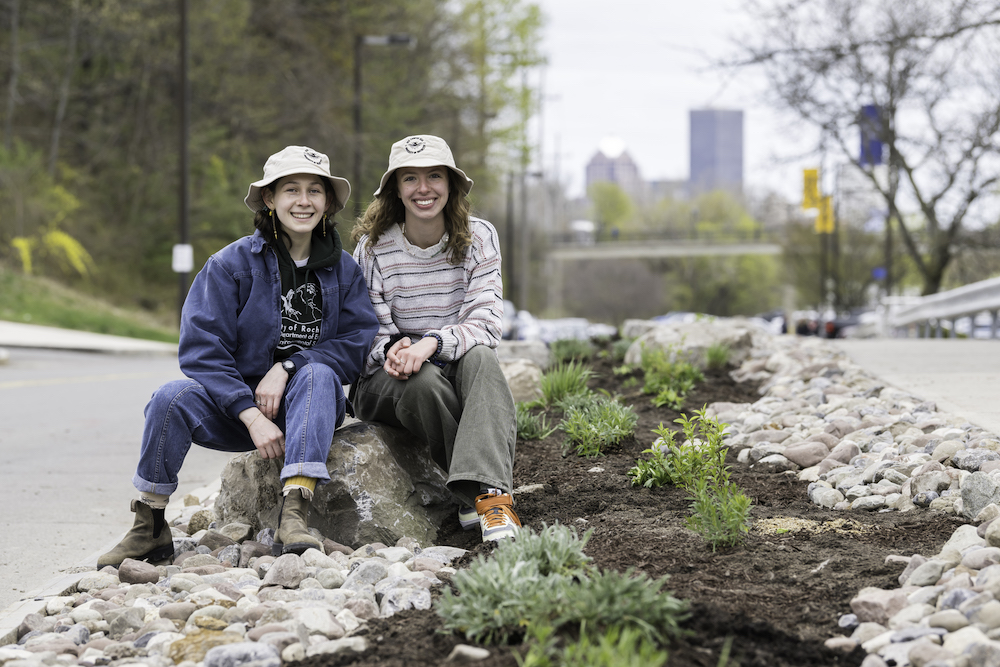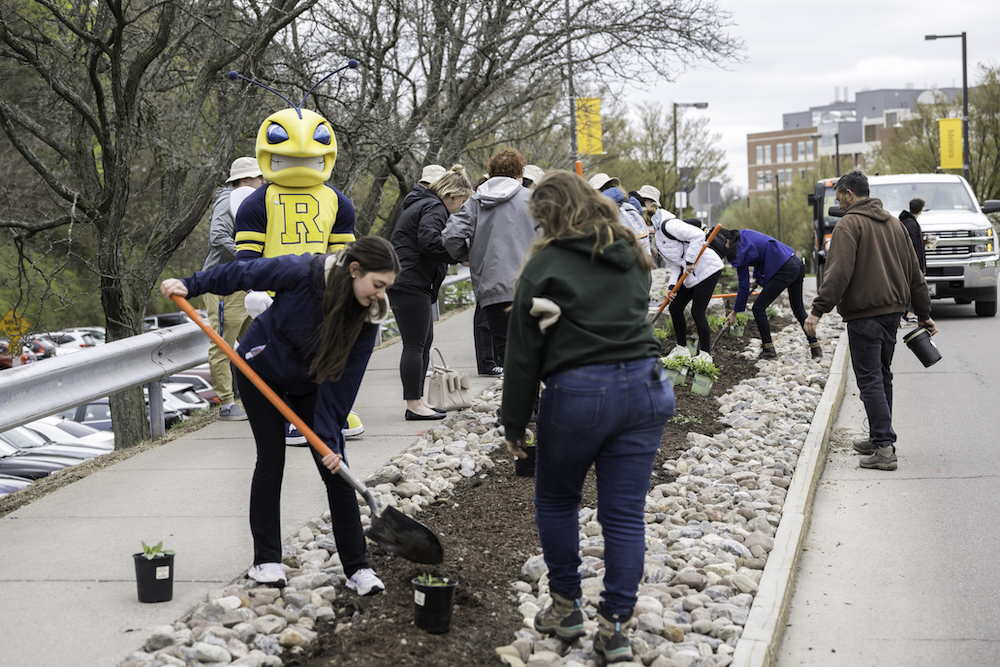 NO BEES, NO FLOWERS: As pollinators, bees enable flowers to reproduce. The University of Rochester earned Bee Campus USA certification from the Xerces Society for Invertebrate Conservation. (University of Rochester photo / Brandon Vick)
NO BEES, NO FLOWERS: As pollinators, bees enable flowers to reproduce. The University of Rochester earned Bee Campus USA certification from the Xerces Society for Invertebrate Conservation. (University of Rochester photo / Brandon Vick)The national designation is the result of a two-year, student-led effort.
As a sophomore, Zoë Bross ’23 learned about Bee Campus USA from a friend at the University of Utah. And she said to herself, “I like sustainability. I like pollinators. Why isn’t the University of Rochester a certified Bee Campus USA?”
That began a two-year effort to earn that certification.

(University of Rochester graphic / Michael Osadciw)
The certification—along with one for Bee City USA—comes from the Xerces Society for Invertebrate Conservation. According to its website, “Bee Campus USA provides a framework for university and college campus communities to work together to conserve native pollinators by increasing the abundance of native plants, providing nest sites, and reducing the use of pesticides.”
“Pollinators keep plants alive and are the very reason we have the food we eat,” says Bross. “But bee populations are threatened because of human activities, like climate change, urbanization, and pesticide usage. That makes pollinators a keystone group for everything we need and use in the world.”
Bees feed pollen to their young, explains Robert Minckley, a senior instructor in the Department of Biology and a coauthor of Solitary Bees: Biology, Evolution, Conservation (Princeton University Press, 2019). “Some of the pollen bees collect from one plant are dropped off at other plants they visit. In that way, bees help flowers to reproduce.”
For Bross, an environmental studies major, the ideas of plant reproduction and sustainability struck close to home. She went to her adviser, Karen Berger, an associate professor of instruction in the Department of Earth and Environmental Sciences and cochair of the University Council on Sustainability, who directed her to the person responsible for the upkeep of the campus greenery: John McIntyre, manager of University Horticulture and Grounds.
“This was a student initiative, so I was just a guiding tool,” says McIntyre. “We already met a lot of the program needs for the certification. I just had to supply documentation to the student group.”
That documentation was only one of many requirements for certification. Others included having pollinator habitats, reducing the use of pesticides, incorporating pollinator conservation studies in the classroom, and establishing a Campus USA committee made up of students, faculty, and staff.
Bross’s efforts paid off on April 10 when the University was certified as Bee Campus USA affiliate.
A fine example of community engagement took place on April 19 as about 150 students—along with faculty, staff, and University mascot Rocky—got together to plant a pollinator garden of native plants at the intersection of Intercampus Drive and Library Road.

Zoë Bross ’23 (left) and incoming Bee Campus rep Sahara Walto ’24 sit atop the new pollinator garden of mixed yaro, butterfly weed, and grass planted in April.

University mascot Rocky was among the volunteers who helped plant the new pollinator garden along Intercampus Drive near Library Road. A total of about 150 students, faculty, and staff participated in the planting throughout the day. (University of Rochester photo / J. Adam Fenster)
“I would have been excited to get 15 people for the planting,” says Bross. “The turnout completely blew me out of the water.”
Bross would like to see a ripple effect from the garden planting. Seeds were given away at the event, and Bross hopes that some new yarrow, coneflower, aster, and milkweed plants will soon sprout at the homes of the people who turned out.
Ultimately, the event and the certification itself are about education. Minckley agrees that bee populations are being hurt in areas where people have disturbed their habitats. He says, “The Bee Campus certification will help educate our community about the importance of reducing pesticide use and favoring native plants.”





